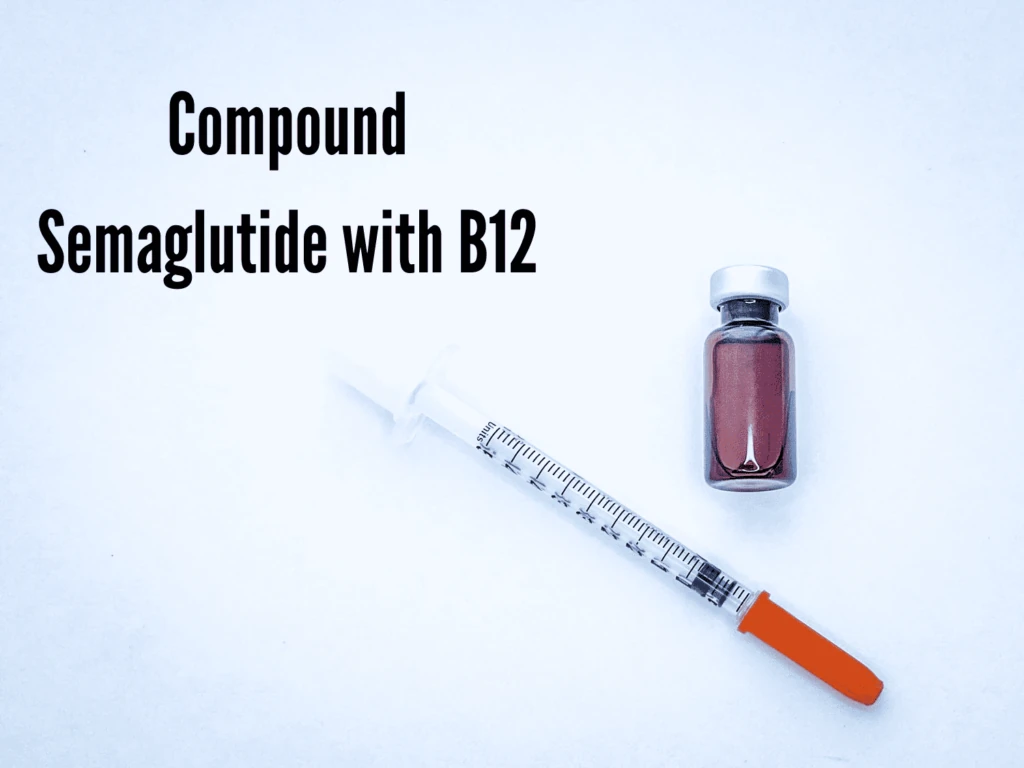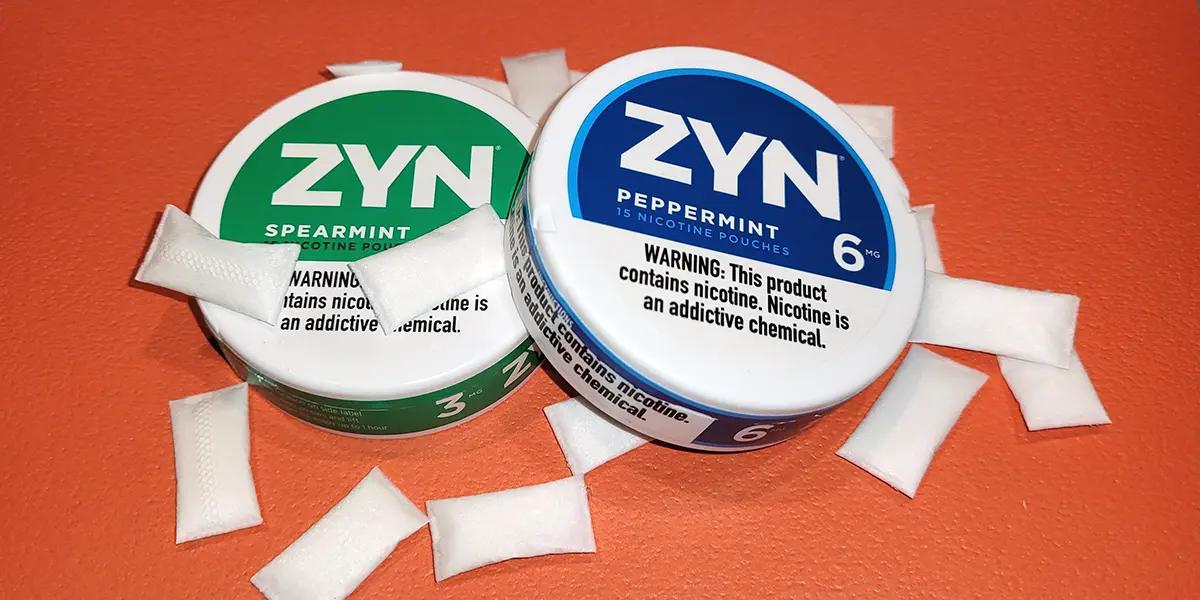It feels like every year, there’s some new “miracle” solution being whispered about for weight loss. But lately, it’s not just whispers. People are openly asking their doctors, their friends, even their favorite Reddit threads about compounded semaglutide with B12. At first glance, it sounds like a mash-up: a blood sugar–friendly GLP-1 medication blended with a vitamin most of us vaguely associate with energy shots at a daily wellness clinic.
And maybe that’s the point. It’s not just about shedding pounds. For many, it’s about stabilizing blood sugar levels, reducing fatigue, and trying to find a program that actually feels sustainable. Some folks swear the addition of Vitamin B12 makes all the difference in patient response, especially for energy and compliance. Others aren’t so sure — they wonder about side effects, safety, and whether compounded semaglutide is really the same as brand-name Ozempic®.
In this article, we’ll explore what’s real, what’s hype, and what you should probably ask your provider before diving in.
What Is Compounded Semaglutide with B12?

At its core, semaglutide is a GLP-1 receptor agonist, a medication designed to mimic glucagon-like peptide-1 in your body. That might sound complicated, but it basically means it helps regulate appetite, insulin levels, and how quickly food moves through your stomach. The brand names you’ve probably heard — Novo Nordisk’s Ozempic® or Wegovy® — are standard versions.
Compounded semaglutide, however, is something prepared by 503A or 503B compounding pharmacies when branded drugs are either unavailable, costly, or when a doctor requests a personalized formula.
Here’s where the B12 part enters. Vitamin B12, also known as cyanocobalamin, is crucial for energy metabolism and red blood cell production. Some compounding pharmacies mix semaglutide sodium or semaglutide acetate with B12 (sometimes even glycine) to create a custom injection. Patients report fewer side effects like nausea, better energy levels, and in some cases, faster weight loss.
But is that just anecdotal, or is there a clear benefit? Well, it depends on who you ask — and we’ll get into the pros, the risks, and even what color compounded semaglutide with B12 is (yes, people Google that).
How Does Semaglutide Work in the Body?

Here’s the thing: when you hear “GLP-1 receptor agonist,” it doesn’t exactly scream clarity. But semaglutide — whether in its branded form like Ozempic® or in a compounded semaglutide with B12 version from a pharmacy — works in some surprisingly simple ways. It taps into a natural hormone in your body called glucagon-like peptide-1 (GLP-1).
So what does that mean in plain English?
- It helps with appetite suppression. You just don’t feel as hungry, which is why people lose weight without white-knuckling through every meal.
- It triggers insulin release. When you eat, your pancreas gets a little boost, helping your body manage blood sugar levels more effectively.
- It slows digestion. Food lingers longer in the stomach, which not only curbs hunger but also smooths out blood sugar spikes.
Here’s a quick look at how it compares:
| Mechanism | What Standard Semaglutide Does | What Compounded Semaglutide with B12 Adds |
| Appetite control | Reduces cravings and food intake | Same, but sometimes patients report steadier energy |
| Insulin sensitivity | Improves blood sugar management | May enhance compliance thanks to added B12 |
| Digestion | Slows gastric emptying | No major difference, though some users feel less nausea |
| Energy levels | Neutral, sometimes fatigue occurs | B12 may help reduce fatigue and boost energy |
Some patients describe it like flipping a quiet switch. You still eat — you just don’t chase that second helping as hard. And when B12 is part of the mix, energy dips seem less brutal, which can help with staying consistent on a weight loss program.
The Role of Vitamin B12 in Weight Loss & Energy

Now, Vitamin B12 — it’s one of those things you don’t think about until you’re tired all the time. A lot of people only discover a deficiency when they’re already dealing with fatigue, tingling in their hands, or just feeling “off.” Pair that with trying to lose weight, and suddenly it makes sense why some compounding pharmacies blend B12 into semaglutide formulations.
B12 has a few underappreciated roles:
- Supports red blood cell formation, which means better oxygen delivery and less fatigue.
- Plays a major part in metabolism — your body literally can’t turn food into usable energy without it.
- May reduce the foggy weakness some people feel when starting a GLP-1 receptor agonist like semaglutide.
Pro Tip:
If you’re already considering compounded medications, ask your provider for a semaglutide B12 dosage chart. It’s not one-size-fits-all, and knowing the right ratio of semaglutide to cyanocobalamin can make the difference between a program that feels tolerable versus one that knocks you flat with side effects.
Some folks even compare notes in online communities — search “compounded semaglutide with B12 Reddit” and you’ll see real stories ranging from “life-changing energy” to “not worth the extra cost.” And honestly, that variability is kind of the theme here.
Benefits of Compounded Semaglutide with B12

So, why are people talking about compounded semaglutide with B12 like it’s some kind of “secret upgrade” to standard semaglutide? A lot of it comes down to how the combination feels in everyday life. On paper, semaglutide already does the heavy lifting with appetite and blood sugar management. But B12, that little metabolic spark plug, can shift the experience for some patients and help in self-care.
Here are a few of the most talked-about benefits:
- Enhanced weight loss potential – Some patient reviews suggest that adding B12 to semaglutide may speed up results in a structured medical weight loss program. Search “semaglutide with B12 for weight loss reviews” and you’ll find everything from 5-star praise to cautious optimism.
- More stable energy – B12 helps reduce fatigue, which is a common complaint when adjusting to GLP-1 receptor agonists.
- Better blood sugar control – Since semaglutide already improves insulin sensitivity and reduces spikes, the addition of B12 may indirectly support better patient compliance.
- Lower nausea in some patients – Anecdotally, a few people claim B12 lessens the queasiness associated with subcutaneous injections of semaglutide sodium or acetate.
- Potential improvement in adherence – When people feel less run-down, they’re more likely to stay on their weight loss program.
Not everyone experiences all these perks, of course. But enough users report that compounding pharmacies keep offering personalized blends — even experimenting with semaglutide with B12 and glycine.
Who Should Consider Compounded Semaglutide with B12?

It’s not a one-size-fits-all solution. Some people thrive on standard Ozempic® or Wegovy® and don’t feel the need for extras. Others seek out personalized compounded semaglutide with B12 because they either can’t tolerate the standard formula or just want a little edge in their treatment.
Here’s who might consider it:
- Adults struggling with obesity or type 2 diabetes _ Especially if weight management has been an uphill battle despite lifestyle changes.
- People with known B12 deficiency – If fatigue, weakness, or neurological symptoms are already a concern, the combination could hit two birds with one injection.
- Patients sensitive to side effects – Some find that compounded semaglutide with B12 makes nausea or fatigue more manageable.
- Those facing shortages or high costs of branded drugs – Many turn to U.S. compounding pharmacies during supply shortages or when cost becomes a barrier.
Pro Tip:
If you’re wondering, “Can I still get compounded semaglutide with B12 near me?” — the answer depends on your state and your provider. Start by checking licensed 503A compounding pharmacies. And always verify credentials; not all online sources for compounded semaglutide with B12 online are trustworthy.
A quick but important reminder: this doesn’t mean compounded versions are “better” or always safer. They aren’t FDA-approved the way Ozempic® is. That said, patients looking for compounded semaglutide with B12 results often weigh the trade-offs between personalized dosing and regulatory oversight.
Possible Side Effects & Safety Concerns
Let’s be real: even though compounded semaglutide with B12 gets plenty of buzz, it’s not all smooth sailing. Like any medication — compounded or brand-name — there are possible downsides. Some patients tolerate it beautifully; others run into issues within the first few weeks.
Common side effects people talk about:
- Nausea (sometimes lessened with B12, but not always)
- Constipation or digestive changes
- Fatigue or dizziness
- Mild headaches
- Injection site irritation (especially if using different injection sites or needles)
Rare but more serious concerns:
- Thyroid C-cell tumors (seen in animal studies, still debated in humans)
- Pancreatitis
- Kidney injury from dehydration (due to persistent nausea/vomiting)
And then there’s the safety question around compounding itself. Unlike Novo Nordisk’s FDA-approved Ozempic® or Wegovy®, 503A/B compounding pharmacies don’t have the same level of regulatory oversight. That means the dosage accuracy, sterility, and even the color of compounded semaglutide with B12 can vary.
Pro Tip:
If you’re curious about semaglutide B12 side effects, start by asking your provider for a clear compounded semaglutide with B12 dosage chart. Inconsistent dosing is one of the biggest risks with non-standard formulations.
And don’t forget — while Vitamin B12 side effects are rare (it’s generally safe, even at high doses), adding it into the mix doesn’t cancel out semaglutide’s risks.
Comparing Compounded Semaglutide with FDA-Approved Versions
One of the most common questions I hear is: “Is compounded semaglutide the same as Ozempic®?” Short answer: no. They’re related, but not identical. Ozempic® (and Wegovy®) are standardized, FDA-approved medications. Compounded versions are alternatives prepared by U.S. compounding pharmacies — usually when there are supply shortages or when providers request a personalized formulation.
Here’s how they stack up:
| Factor | Compounded Semaglutide with B12 | FDA-Approved Semaglutide (Ozempic®, Wegovy®) |
| Ingredients | Semaglutide sodium or acetate, often mixed with B12 (sometimes glycine) | Standardized semaglutide only |
| Regulation | Prepared in 503A/B compounding pharmacies, not FDA-approved | FDA-approved, manufactured by Novo Nordisk |
| Cost | Usually lower, but varies — search “compounded semaglutide with B12 cost” and you’ll find a wide range | Higher, often $800–$1,200/month without insurance |
| Availability | Can be found online or through local compounding pharmacies | Limited during shortages, but widely prescribed |
| Customization | Flexible dosing and blends (like personalized compounded semaglutide with B12) | Fixed dosing schedules |
| Safety consistency | Varies; risk of incorrect concentration or sterility issues | Consistent, tightly regulated |
Some patients prefer compounded versions for flexibility and affordability. Others stick with FDA-approved products for the reassurance of standardized safety. If you’re asking yourself, “Will compounded semaglutide with B12 be banned?” — the truth is, regulatory debates are ongoing. The FDA has cracked down on some compounded GLP-1s, but access still exists through certain pharmacies.
How to Get Compounded Semaglutide with B12 Safely
The most common question people type into search bars is some version of: “Where can I get compounded semaglutide with B12 near me?” or “Can I still get compounded semaglutide with B12 online?” The short answer: yes, but you need to be careful. Not every pharmacy advertising online meets the standards you’d want for something you’re injecting into your body.
Here’s a safe step-by-step way to approach it:
- Start with your healthcare provider. Even if telehealth feels easier, your doctor can confirm whether compounded options make sense for your condition.
- Check for licensed 503A or 503B pharmacies. These pharmacies are legally allowed to create personalized formulas, including compounded semaglutide with B12 dosing.
- Ask about source materials. Is the semaglutide being prepared from semaglutide sodium or acetate? Both exist in the compounding space.
- Request a clear dosage guide. A compounded semaglutide with a B12 dosage chart can prevent confusion and reduce side effect risks.
- Be cautious with online offers. Some “pharmacies” may cut corners. Always confirm licensing, and when in doubt, ask for proof.
Pro Tip:
If cost is a concern, compare quotes from multiple U.S. compounding pharmacies. Prices vary widely — one clinic might charge $250 a month, while another lists the same product at $500+. Search for compounded semaglutide with B12 cost before committing.
Real-World Experiences & Patient Stories
Medical articles often sound clinical, but if you scroll through a compounded semaglutide with B12 Reddit thread or glance at reviews on telehealth sites, you’ll find something more relatable: real people just figuring it out.
- Case 1: Maria, 42 — She switched from standard Ozempic® after weeks of relentless nausea. On a compounded blend with B12, she says, “It’s not perfect, but I can function again. The nausea dropped to a level I can handle.”
- Case 2: Devin, 35 — He describes it more bluntly: “Energy-wise, B12 helped. But the weight loss results weren’t wildly different. Still, I stayed consistent because I wasn’t wiped out every afternoon.”
- Case 3: A Reddit reviewer — They questioned, “Is compounded semaglutide with B12 safe?” but still tried it after their insurance denied Wegovy®. Their verdict: effective but pricey.
When people search “does compounded semaglutide with B12 work” or “compounded semaglutide with B12 results,” this is what they’re looking for — unfiltered, human answers. Some experiences are glowing, others lukewarm, but the takeaway is that results vary with patient response, lifestyle, and the pharmacy’s formula.
Table: A Snapshot of Reported Experiences
| Experience Theme | Positive Reviews | Neutral/Negative Reviews |
| Weight loss | Noticeable in 8–12 weeks, especially with lifestyle changes | No major difference vs. Ozempic® |
| Energy levels | Improved, especially for those with B12 deficiency | Minimal change if baseline B12 was normal |
| Side effects | Less nausea and fatigue | Some still experienced digestive discomfort |
| Cost satisfaction | More affordable than branded drugs | Still expensive if not covered by insurance |
So yes, compounded oral semaglutide with B12 and injection versions both show promise, but the variability is what makes patient stories so important.
Alternatives to Compounded Semaglutide with B12
It’s easy to get caught up in the buzz around personalized compounded semaglutide with B12, but it’s not the only option out there. Some people prefer to stick with FDA-approved drugs, while others lean toward lifestyle tweaks or different compounded blends.
FDA-approved GLP-1 options
- Ozempic® (semaglutide) – Primarily for type 2 diabetes, but often prescribed off-label for weight management.
- Wegovy® – The higher-dose semaglutide formulation specifically approved for weight loss.
- Rybelsus® – The oral semaglutide option, no injections needed.
Other compounded medications
- Compounded oral semaglutide with B12 – A capsule form some pharmacies prepare for patients who hate needles.
- Compounded semaglutide with glycine – Marketed as gentler on digestion.
Non-medication alternatives
- Structured weight loss programs – Combining diet coaching, exercise, and behavioral support.
- Vitamin B12 injections – Used alone, these won’t suppress appetite but may improve energy and correct deficiencies.
- Lifestyle interventions – Not glamorous, but sleep, stress management, and balanced meals still matter.
Comparison Table:
| Option | Pros | Cons | Best For |
| Compounded semaglutide with B12 | Personalized dosing may reduce fatigue | Not FDA-approved, cost varies, safety concerns | Patients who need flexibility or can’t access branded drugs |
| Wegovy® | FDA-approved, proven weight loss results | Expensive, supply shortages | People focused on weight loss specifically |
| Ozempic® | Strong for blood sugar and weight control | Insurance hurdles, injection only | Type 2 diabetes patients |
| Rybelsus® | Oral, no injections | May be less effective, daily dosing needed | Needle-averse patients |
| B12 injections | Safe, improves energy | No effect on appetite | Those with B12 deficiency |
So if you’re wondering, “Will I still be able to get compounded semaglutide with B12?” the answer is yes (for now), but always weigh the alternatives. Sometimes the standardized path is easier, other times the customized route works better.
Final Thoughts
At the end of the day, choosing the right weight management plan is deeply personal. For some, lifestyle changes and regular exercise are enough. For others, medical support becomes an essential piece of the journey. That’s where options like compounded semaglutide with B12 come into the conversation.
By blending the proven effects of semaglutide with the energy-boosting benefits of Vitamin B12, this combination offers a unique approach for people who want more than what standard prescriptions provide. Still, it’s important to keep perspective. No injection or supplement is a magic solution, and results can vary widely depending on diet, activity, and overall health and wellness.
What works for one person might not work for another, and that’s completely normal. The most important step is working with a trusted healthcare professional who understands your needs and can guide you safely. As more patients explore compounded therapies, the focus should always stay on long-term health, not just quick fixes.
Compounded semaglutide with B12 may be a helpful tool, but it works best as part of a bigger lifestyle strategy that includes mindful eating, movement, and regular medical check-ins. Sustainable results come from balance, patience, and consistency.
Frequently Asked Questions
1. Does compounded semaglutide with B12 work?
Yes, it may support weight loss by combining semaglutide’s appetite control with B12’s energy support. However, effectiveness can vary since compounded versions aren’t FDA-approved.
2. What is the new semaglutide with B12?
It’s a compounded version of semaglutide blended with vitamin B12. This mix is often marketed to enhance energy and reduce nausea.
3. Is compounded semaglutide being banned?
The FDA is moving to restrict compounded semaglutide due to safety and quality concerns. In many states, compounding pharmacies may soon face tighter rules.
4. How often should you get a B12 shot for weight loss?
Most people get B12 shots weekly or monthly, depending on their doctor’s advice. The exact schedule depends on your health and vitamin levels.
5. Is compounded semaglutide the same as Ozempic?
No, Ozempic is the FDA-approved brand of semaglutide. Compounded semaglutide is a pharmacy-made alternative, with less oversight.
6. How often should I take B12 with semaglutide?
Usually, B12 is given weekly or monthly, alongside semaglutide doses. Your provider may adjust based on lab tests and symptoms.
7. Can B12 deficiency cause weight gain?
Yes, low B12 can slow metabolism and cause fatigue, making weight control harder. It doesn’t directly cause obesity, but it can contribute indirectly.
8. Why am I not losing weight on compounded semaglutide?
Weight loss depends on diet, exercise, and medication response. Some people need dosage adjustments or additional lifestyle changes.
9. How long can you stay on compounded semaglutide?
Many patients use semaglutide long-term under medical supervision. Safety depends on your health, dosage, and doctor’s guidance.
10. Is it safe to inject compounded semaglutide?
It can be safe if prescribed and sourced from a reputable pharmacy. But risks are higher compared to FDA-approved brands like Ozempic.
11. Do B12 shots help with belly fat?
B12 shots don’t directly target belly fat. They may boost energy and metabolism, which can support weight loss efforts.



